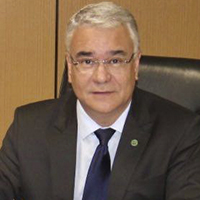Opening and Moderation

Marcos Jank
Trustee
Senior Professor of Agribusiness at INSPER
66c8ab2f7b900.png)
Julia Dias Leite
CEO at CEBRI
The UN Conference on Climate Change (COP26), to be held in Glasgow, Scotland, in November, seeks ways to avoid global warming exceeding 1.5º C. To address this issue, the next CEBRI-Insper meeting will focus on two key aspects related to Articles 4 and 6 of the Paris Agreement. The first refers to the updating of each country's national climate commitments (NDCs) and, the second, to the operationalization of international mechanisms for the transfer of carbon credits. Brazil has the potential to assume a relevant NDC. Advances represented by RenovaBio and other developments, such as the recently approved legislation on Payments for Environmental Services (PES), together with a regulated carbon market in Brazil, will support the country's ambition.
The Brazilian agribusiness sector is capable of being a protagonist in the global transition to a low carbon economy, based on different practices already adopted, and on other transformations that are underway. The way the sector will be able to contribute to this transition, and also to benefit from it, depends largely on the market framework that emerges from COP26.
October 19th, 2021
Online Event
6 to 7h30pm BRT
Portuguese only
The UN Conference on Climate Change (COP26), to be held in Glasgow, Scotland, in November, seeks ways to avoid global warming exceeding 1.5º C. To address this issue, the next CEBRI-Insper meeting will focus on two key aspects related to Articles 4 and 6 of the Paris Agreement. The first refers to the updating of each country's national climate commitments (NDCs) and, the second, to the operationalization of international mechanisms for the transfer of carbon credits. Brazil has the potential to assume a relevant NDC. Advances represented by RenovaBio and other developments, such as the recently approved legislation on Payments for Environmental Services (PES), together with a regulated carbon market in Brazil, will support the country's ambition.
The Brazilian agribusiness sector is capable of being a protagonist in the global transition to a low carbon economy, based on different practices already adopted, and on other transformations that are underway. The way the sector will be able to contribute to this transition, and also to benefit from it, depends largely on the market framework that emerges from COP26.

Senior Professor of Agribusiness at INSPER
66c8ab2f7b900.png)

National Secratary for Climate Change at the Ministry of Environment and Climate Change


